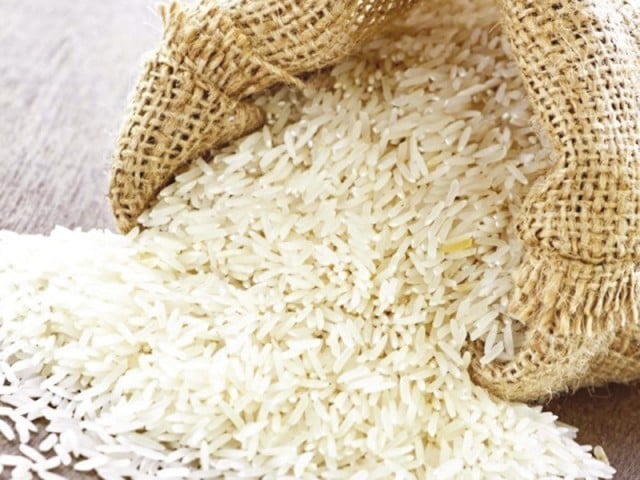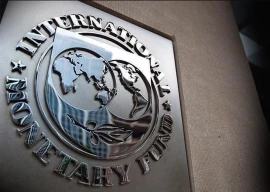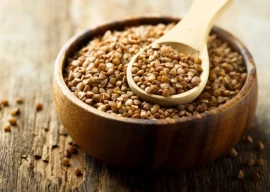
India has claimed its rights over Basmati rice in the European Union market and has challenged the Geographical Indication (GI) law, Commerce Secretary Muhammad Sualeh Ahmad Faruqui informed a parliamentary panel on Tuesday.
He told the Senate Standing Committee on Commerce and Trade that India had challenged the GI law aimed at protecting Pakistani-origin products. Intellectual Property Organisation (IPO) Chairman Mujeeb Ahmed Khan revealed that India had challenged Pakistan’s Basmati rice in the EU on September 11 but it did not challenge the entire law.
He said that India had applied for tagging of Basmati rice in the EU market. The EU has uploaded the information on its website so that if any country has any objection it can make a request within a specific time period. The IPO chairman added that Pakistan would challenge the claim, saying that India had manipulated facts in its application and its case was based on weak grounds.
Speaking on the occasion, Committee Chairman Senator Mirza Muhammad Afridi said that smuggling had gone down substantially due to the effective measures taken for its eradication, which supported the domestic industry and would be instrumental in promoting economic activities and businesses in the country. Afridi appreciated the measures, saying that sick units needed to be facilitated to ensure their revival.
The committee was also apprised of the problems faced by farmers due to inadequate prices of tomato and onion despite a good harvest during the current season.
It was briefed about the steps being taken for exploring new markets for dates, tax evasion on computer, laptops and other IT equipment as well as issues related to under-invoicing.
Committee chairman and its members said that the basic purpose was to protect the domestic industry and its production for overall progress of the country. Senator Mir Kabeer Ahmad Muhammad Shahi said that due to import of fruits and vegetables from neighbouring countries, farmers of Balochistan did not get fair prices for apple, grapes, onion and tomato.
He said that the Ministry of Commerce and Trade should take measures for the protection of farmers and ensuring utilisation of domestic produce before importing such commodities.
Responding to that, the commerce secretary assured the committee that the issues would be resolved in collaboration with the Ministry of National Food Security and the committee would be apprised accordingly.
Talking about Afghan transit trade, Senator Dilawar Hussain said that due to the deficiency of trackers, there was a huge pressure on transit points. He asserted that an appropriate solution should be found.
Elaborating, the committee chairman said that trade was the backbone of the national economy and an appropriate strategy should be framed to promote business activities in the country.
Adviser to Prime Minister on Commerce Abdul Razak Dawood apprised the committee that the State Bank of Pakistan had been approached for the provision of easy loans to small and medium industries and consultation process for the IT sector was in progress, which would yield positive results.
The commerce secretary informed the committee that an e-commerce policy had been introduced and the committee, in its next meeting, would be informed about the framework in that regard.
Afridi appreciated the measures but he emphasised that sick units should be supported so as to cater to local requirements as well as export-oriented units. Senator Dilawar informed the committee that the Trade Development Authority of Pakistan (TDAP) could not hold even a single meeting so far. He said that he had sought different details from TDAP, which had not been provided yet.
Senator Afridi said that TDAP was an important organisation and its board should hold regular meetings to proceed on different issues and the people of Pakistan should have access to information. He said that a question had been raised about the trade and commercial attachés posted in different countries. He added trade and commercial attachés should improve their efficiency and awareness must be created about Pakistani products in foreign countries.
The committee also insisted on the provision of facilities and capacity building of tobacco farmers in Mardan, Charsadda and Swabi districts. Senator Dilawar emphasised that all stakeholders must be taken into confidence as quality tobacco was produced in those areas and the national exchequer got taxes worth billions of rupees.
About the export of dates, the committee was informed that 70% of dry dates had been exported to India but due to suspension of trade with Delhi, farmers were facing huge losses.
Published in The Express Tribune, September 23rd, 2020.
Like Business on Facebook, follow @TribuneBiz on Twitter to stay informed and join in the conversation.




1725967717-0/Untitled-design-(3)1725967717-0-165x106.webp)













COMMENTS
Comments are moderated and generally will be posted if they are on-topic and not abusive.
For more information, please see our Comments FAQ